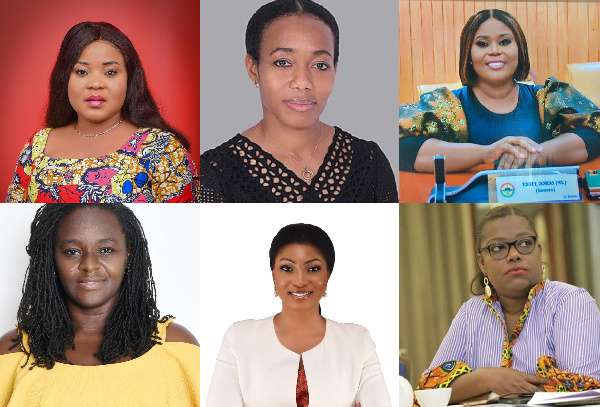Hon. Dakoa Newman, Member of Parliament and Minister for Gender, Children and Social Protection has expressed deep concern over the persistent and pervasive abuse faced by women in politics, a situation that continues to undermine the democratic process in Ghana.
Despite notable strides in advancing gender equality, women in the country’s political landscape remain vulnerable to a wide range of harassment, discrimination, and violence, which significantly hinders their full participation and progress in public service.
“Recent reports reveal alarming rates of harassment faced by female politicians, candidates, and activists. These include verbal abuse, threats of violence, and cyberbullying, often targeting both their personal lives and professional credibility.”
Hon. Dakoa Newman, Member of Parliament and Minister for Gender, Children and Social Protection
According the Minister, such attacks frequently target both the personal lives and professional credibility of these women, creating a hostile environment that discourages their engagement in politics. This environment not only hampers their ability to contribute effectively but also disproportionately impedes their career advancement.
The press release emphasized the gravity of these issues, noting that the abuse faced by women in politics is not just a personal affront but a significant barrier to their full participation in public service.
Hon. Dakoa Newman highlighted that these threats, whether physical or psychological, endanger the safety of women in politics and have a chilling effect on their willingness to participate in public life. This situation is particularly troubling in a democratic society that upholds the principle of equal representation and participation for both men and women in decision-making processes.
Hon. Dakoa Newman emphasized that the fight for gender equality is not one that can be won by the government alone. It requires the collective effort of all sectors of society, including political parties, the media, civil society organizations, and the general public. Only through concerted action can the barriers that women face in politics be dismantled, paving the way for a more just and equitable society.
Underrepresentation of Women in Politics

The underrepresentation of women in Ghana’s political arena remains a pressing issue. The Ministry’s statement drew attention to the persistently low number of women in Parliament, despite slight increases over recent years.
“In 2012, only 30 out of 275 Members of Parliament (MPs) were women, representing 10.9%. The 2016 elections saw this figure rise to 36 women MPs (13.1%), and the 2020 elections recorded 40 female MPs (14.5%).”
Hon. Dakoa Newman, Member of Parliament and Minister for Gender, Children and Social Protection
However, these numbers are still alarmingly low, reflecting the systemic barriers that women face in entering and remaining in politics.
The Minister argued that this underrepresentation is symptomatic of broader systemic issues, including the abuse and discrimination that women face. These challenges are not only obstacles to the individual women involved but also to the broader goal of achieving gender equality in political representation.
The lack of women in leadership roles within the political sphere limits the diversity of perspectives and experiences that are brought to the table, ultimately hindering the development of inclusive and equitable policies.
As a leading advocate for social justice and gender equality, the Ministry of Gender, Children and Social Protection is committed to addressing these issues through a combination of public education, advocacy, and research.
The press release called on political institutions, the media, and civil society organizations to collaborate in creating a safer and more equitable environment for women in politics. This collaborative effort is essential for dismantling the systemic barriers that women face and for empowering them to contribute meaningfully to the political process.
The Minister’s statement also implored the general public to actively participate in these efforts, emphasizing that the participation of women in politics is not just a matter of fairness but also of necessity. Women’s involvement in politics enriches the policymaking process, advances gender equality, and serves as a powerful role model for future generations.
The Minister’s press release concluded with a renewed commitment to promoting gender equality in all aspects of Ghanaian society. While significant progress has been made, the persistent abuse and underrepresentation of women in politics indicate that much work remains to be done.
The Minister reaffirmed its dedication to advancing inclusive practices and policies that will enable women to participate fully and equally in the democratic process.




















